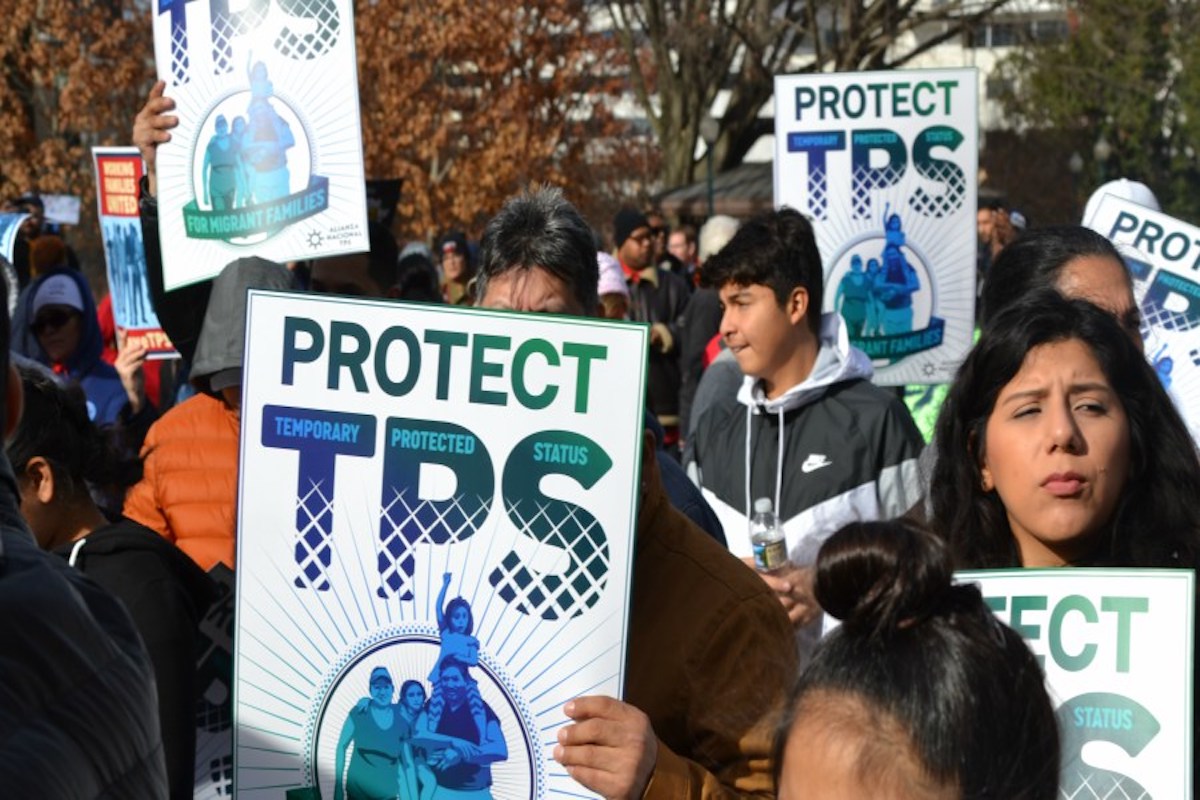

In the middle of a pandemic, natural disasters, the upcoming election and national calls for racial justice, many may have now forgotten that in mid-September, the 9th Circuit Court affirmed the Trump administration’s move to end the Temporary Protected Status program (TPS) for recipients from El Salvador, Nicaragua, Haiti and Sudan.
That means that amid the turmoil and economic uncertainty, more than 300,000 immigrants who have long called the U.S. home are now at increased risk for deportation from the country that is now their home. These are neighbors, co-workers, relatives and friends who may now be forced back to places that continue to suffer from violence, economic insecurity and other challenges that the United States’ own Department of State has deemed unsafe for U.S. citizens to travel.
Legality, albeit temporary has helped TPS recipients thrive in their communities and make significant economic contributions to the U.S. economy. Program participants have high rates of labor participation, entrepreneurship and civic participation in their communities. Sending them back to countries where they lack a safety net is destabilizing and cruel. The right thing to do is restore TPS and allow participants to remain in the country permanently.
Economists’ research on the effects of TPS demonstrates that Salvadoran TPS holders are likely to fare better in the labor force compared to other immigrants. Thus, even a temporary status provides the benefit of holding steady jobs, supporting their children’s education, buying a home, and giving them and their families opportunities for advancement both in the United States and in El Salvador.
TPS holders are also firmly rooted in their communities, especially in Los Angeles, where the largest concentration in the United States lives. Research conducted at the Center for Migration Research finds that 22 percent of TPS holders arrived as children under the age of 16 and TPS holders reside in over 200,000 U.S. households. A 2016 nationwide survey of over two thousand Salvadorans and Hondurans who hold TPS status, which I directed, showed that two thirds of them have U.S.-born children and participate actively in civic projects in their neighborhoods, churches, and their children’s schools.
During the coronavirus pandemic, TPS holders have kept the economy running. Almost 90 percent have held jobs in key economic sectors, and many are essential workers. About 33 percent own their homes and 75 percent pay for their own health insurance. This level of integration is not surprising, given that most TPS holders have spent at least half their lives in the United States, dutifully renewing their TPS permits every 18 months and paying the required $495 fee.
Much of my academic research has focused on studying the Salvadoran community’s experience with what I have called liminal legality, or the limbo state inherent in a temporary status such at TPS. Its temporariness breeds uncertainty, a tentativeness to plan, and a fear that the benefits may end. I have listened to countless stories of what living in this legal limbo for 20 years feels like, waking up in the middle of the night wondering if a renewal will come, doubting if they will achieve their educational dreams or be around for their children’s graduations or weddings, and fearing the devastating effects of a deportation for their loved ones.
Despite the fears, TPS holders are resilient and productive members of society. Our immigration policy should support and cultivate their social and economic contributions, rather than abruptly put them in the path of danger.
De-documenting and deporting TPS holders would destroy families and go against the national interest. Thus, rather than green-lighting the end of TPS designation, this designation should be renewed and then TPS beneficiaries should be given the chance to apply for permanent residence. It is time for Congress to do the right thing to ensure that TPS beneficiaries are permanently protected.
***
Cecilia Menjivar is a professor of sociology affiliated with the UCLA Latino Policy and Politics Initiative and an expert on Central American immigration. Twitter: @menjivar_ceci.



I doubt all tps recipients are productive members of society. ms 16?